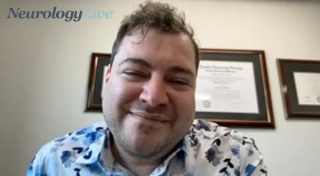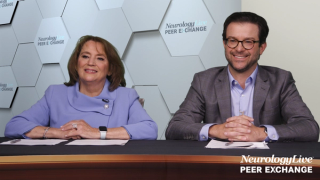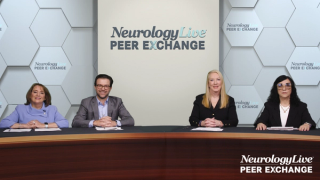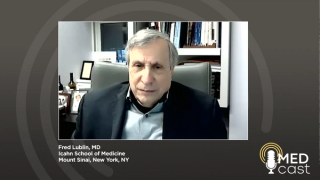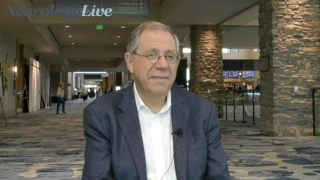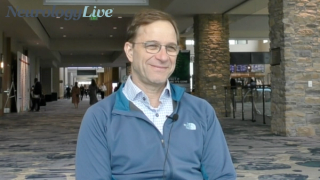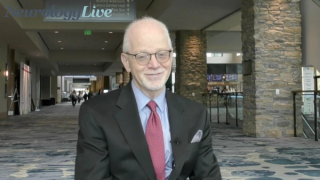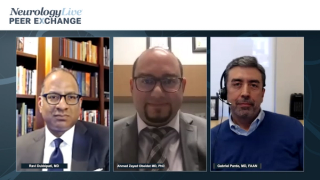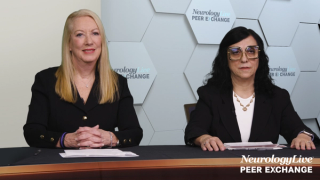
MS and Demyelinating Disorders
Latest News

Subcutaneous Infusion of Ocrelizumab Using ENHANZE Technology Shows Noninferiority to Intravenous Formulation
Latest Videos

CME Content
More News
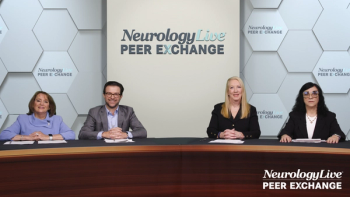
Advanced practice providers discuss potential cost savings with biosimilars and biosimilar use in multiple sclerosis.

The assistant professor at Queen’s University discussed results from a pilot trial that evaluated the impact of a dyadic physical activity intervention among both caregivers and patients with multiple sclerosis. [WATCH TIME: 5 minutes]

In this episode of MEDcast, Dr Krieger, Dr Brandstadter, and Dr Bove discuss MS care in patients who are considering pregnancy. They highlight treatment options, monitoring recommendations during and after pregnancy, as well as other crucial considerations when caring for patients with childbearing goals.
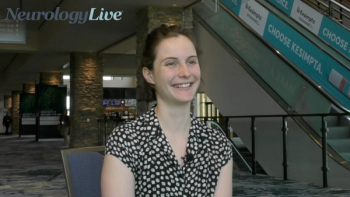
The postdoctoral researcher in the department of neurology at John Hopkins School of Medicine talked about indole-3-lactate as a signaling molecule in the gut-brain axis and its potential as a treatment for MS. [WATCH TIME: 5 minutes]

Here's some of what is coming soon to NeurologyLive® this week.
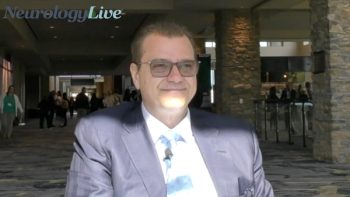
The director of the Buffalo Neuroimaging Analysis Center talked about the ENLIGHTEN trial, where results showed a correlation between cognitive impairment and brain volume with ozanimod. [WATCH TIME: 5 minutes]

Test your neurology knowledge with NeurologyLive®'s weekly quiz series, featuring questions on a variety of clinical and historical neurology topics. This week's topic is stroke and cerebrovascular disease.

Findings from data on patients with various autoimmune disorders who used remibrutinib, a BTK inhibitor in development for multiple sclerosis, reported no safety concerns in laboratory analyses.

Take 5 minutes to catch up on NeurologyLive®'s highlights from the week ending July 7, 2023.

The senior vice president for Research and Training at Kessler Foundation talked about the issue of fatigue in patients with multiple sclerosis and the significant, multifaceted challenges patients face. [WATCH TIME: 5 minutes]

Over a 96-week period, more older patients with relapsing multiple sclerosis on diroximel fumarate achieved no evidence of disease activity-3 status vs younger patients.

In the phase 3 OPTIMUM study of ponesimod, findings showed that MRI features in patients with multiple sclerosis were significantly associated with clinical scales.
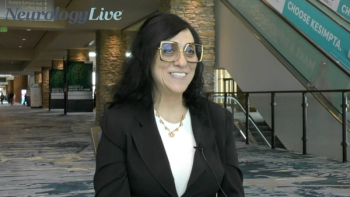
The assistant professor at Hunter College discussed the approach of systematically localizing symptoms in patients with multiple sclerosis for diagnosis based on a clinical workshop. [WATCH TIME: 5 minutes]

The assistant professor at the University of Alabama at Birmingham discussed the transition from pediatric to adult care for patients with multiple sclerosis as well as the challenges presented in diagnosis, treatment, and understanding the long-term impact of the disease. [WATCH TIME: 5 minutes]

METEOROID is the first study to evaluate the efficacy and safety of satralizumab, an FDA-approved therapy for NMOSD, in patients with MOGAD.
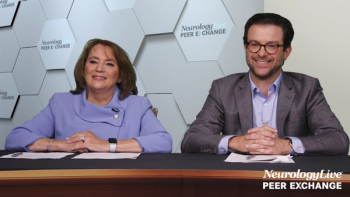
Amy Perrin Ross, APN, Patricia Melville, NP-C, and Aliza Ben-Zacharia, PhD, DNP, ANP-BC discuss importance of evaluating immunogenicity of biosimilars.

A panel of experts in the treatment of patients with NMOSD discusses and offers insight into the vital aspects of diagnosis, disease management, and therapeutic strategy.

Here's some of what is coming soon to NeurologyLive® this week.

Test your neurology knowledge with NeurologyLive®'s weekly quiz series, featuring questions on a variety of clinical and historical neurology topics. This week's topic is multiple sclerosis.

Take 5 minutes to catch up on NeurologyLive®'s highlights from the week ending June 30, 2023.

Mind Moments®, a podcast from NeurologyLive®, brings you exclusive interviews with Amit Bar-Or, MD; Gavin Giovannoni, MBBCh, PhD; Dayna Johnson, PhD, MPH, MSW, MS; John Winkelman, MD, PhD; Laxman Bahroo, DO; Ling Wan-Albert, OTD, OTR/L; Sara Pavitt, MD; and Ali Ezzati, MD. [LISTEN TIME: 28 minutes]
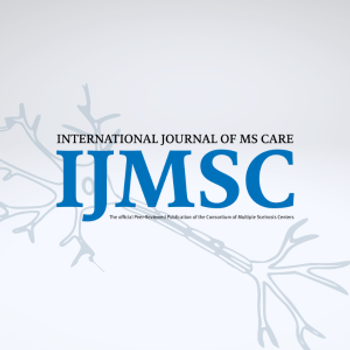
Review the latest peer-reviewed articles dedicated to the multidisciplinary management of multiple sclerosis published in the International Journal of MS Care.
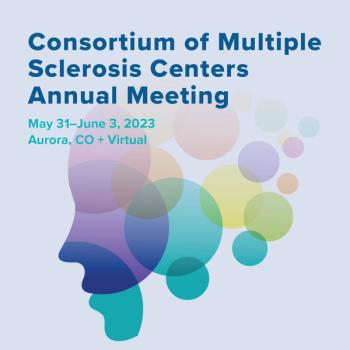
A group of experts in the care of patients with neurological conditions—Gavin Giovannoni, MBBCh, PhD, FCP, FRCP, FRCPath; Andrew Solomon, MD; Anne H. Cross, MD; Anthony Feinstein, MPhil, PhD, FRCP; Brian G. Weinshenker, MD, FRCP—shared their perspectives on hot topics of treatment and management in multiple sclerosis from the 2023 Consortium of Multiple Sclerosis Centers Annual Meeting.

John DeLuca, PhD, senior vice president for Research and Training at Kessler Foundation, discussed the challenges in understanding and measuring fatigue in patients with multiple sclerosis.

As a recap from CMSC 2023, get caught up on some of the latest news in neurology as the NeurologyLive® team shares some of our data updates.





